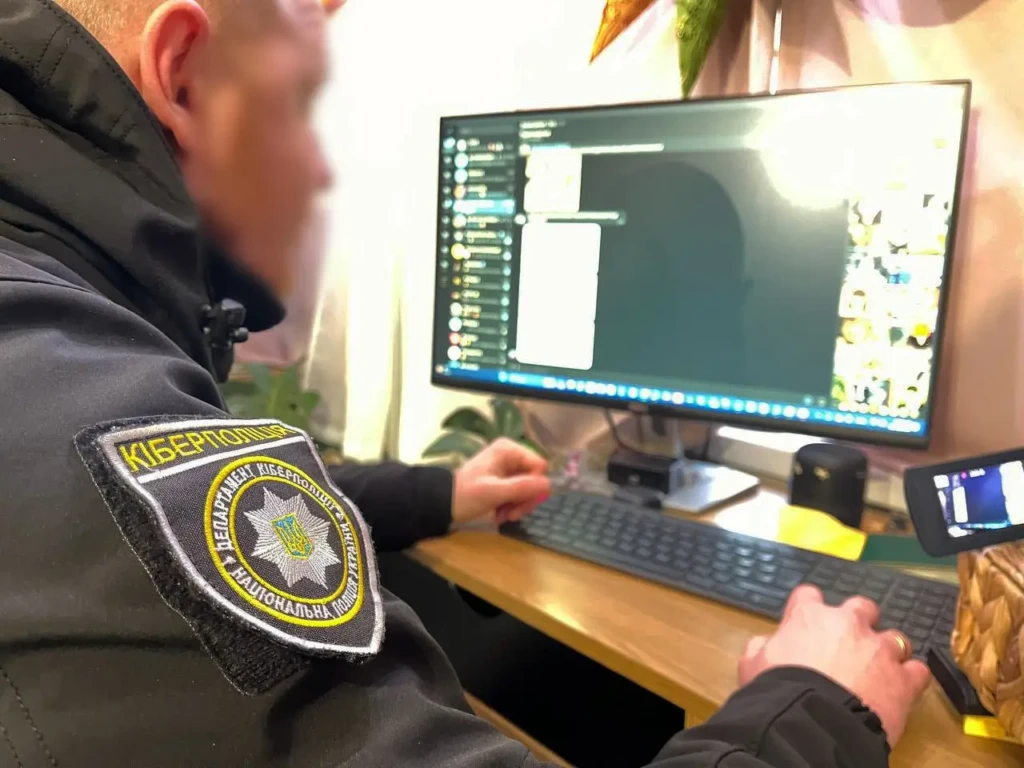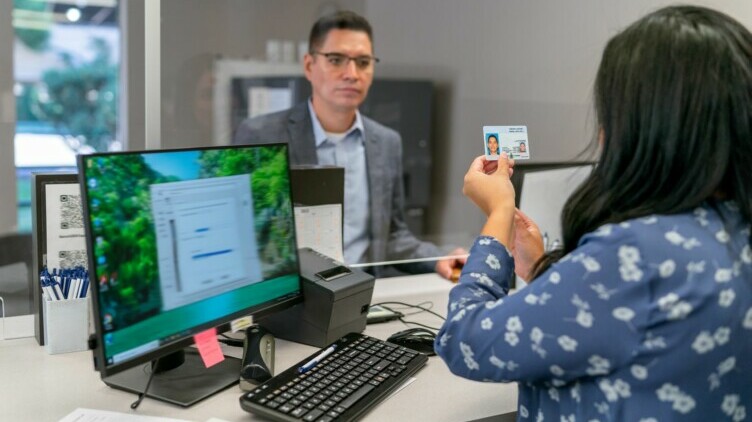Chinese Money Laundering Organizations (CMLOs) – Use of Counterfeit Chinese Passports
A Scam Warning to Merchants & Businesses
Authors:
• SCARS Editorial Team – Society of Citizens Against Relationship Scams Inc.
• United States Department of Homeland Security Investigations (HSI)
Article Abstract
The Homeland Security Investigations (HSI) warns U.S. financial institutions of Chinese Money Laundering Organizations (CMLOs) using counterfeit Chinese passports to facilitate criminal activities.
Chinese Money Laundering Organizations (CMLOs,) affiliated with Mexican cartels and transnational criminal groups, recruit Chinese nationals as “money mules” through social media, particularly WeChat.
These individuals, often unaware of illegality, use counterfeit passports to open bank accounts, contributing to multi-billion-dollar criminal enterprises. Chinese Money Laundering Organizations (CMLOs) employ schemes like check kiting and exploiting float time for bank fraud. Funds laundered through these accounts purchase assets, including luxury goods and real estate. HSI provides red flag indicators to help financial institutions detect and prevent such activities.
Chinese Money Laundering Organizations (CMLOs) – Use of Counterfeit Chinese Passports
The Homeland Security Investigations (HSI) Cross-Border Financial Crime Center (CBFCC) is issuing this notice to alert U.S. financial institutions of the prevalent use of counterfeit Chinese passports by Chinese money laundering organizations (CMLOs) to facilitate criminal activity. Operating throughout the United States, CMLOs, including those with suspected associations with Fujian Organized Crime groups, have become key cogs in the multi-billion-dollar criminal empires run by Mexican cartels and other transnational criminal organizations.
Chinese Money Laundering Organizations (CMLOs) recruit Chinese nationals living in the United States to assist with laundering the proceeds of crime. These “money mules” are often enlisted by CMLOs using social media platforms, including messaging apps such as WeChat. Money mules may be told they are providing money transmission services for international students, or they are servicing unbanked Chinese citizens residing in the United States. In some instances, money mules may not even be aware of the illegality of their actions, making it essential for financial institutions to be aware of the potential red flags identified further below.
Use of Counterfeit Chinese Passports by Chinese Money Laundering Organizations – CMLOs
Money mules are known to use counterfeit Chinese passports supplied by these Chinese Money Laundering Organizations (CMLO) to open bank accounts for the explicit purpose of moving, concealing, and laundering the proceeds of a variety of crimes, including drug trafficking, human smuggling, prostitution, bank fraud, fraudulent mass marketing, and other financial fraud schemes. For instance, analysis of a CMLO cell by the CBFCC identified that between July 2022 and November 2023, U.S. financial institutions filed hundreds of Currency Transaction Reports—documenting tens of millions of dollars in cashier’s check purchases—associated with dozens of bank accounts opened with counterfeit Chinese passports. These accounts associated with this CMLO cell were used to launder proceeds derived from fraud and other suspected crimes.
HSI has observed that Chinese Money Laundering Organizations (CMLOs) also use counterfeit Chinese passports to perpetrate large-scale bank fraud schemes, such as “check kiting,” where they open a series of accounts at one bank and then deposit checks drawn from another series of bank accounts opened at a different financial institution. The CMLO takes advantage of the period it takes for the checks to clear (“float” time) to drain the bank accounts before the crediting financial institution is made aware that the accounts from which the checks were drawn have insufficient funds.
CMLOs are known to use WeChat to purchase high-quality counterfeit Chinese passports that are produced in China and subsequently shipped to the United States. HSI investigations have confirmed that some of these passports also contain counterfeit U.S. visas as well as counterfeit entry stamps. Upon receipt, CMLOs provide these counterfeit passports to Chinese money mules where they are used to establish bank accounts at U.S. financial institutions.
Chinese money mules recruited for these schemes often purport to be students or workers in the hospitality or food service industry, such as chefs, cooks, waitresses, laborers, or delivery drivers, when opening bank accounts at financial institutions. These mule accounts are often funded with an initial small dollar cash deposit (e.g., $100), followed by large dollar cash deposits shortly thereafter that are inconsistent with the stated occupation of the account holder. Once opened, it is not uncommon for other members of the Chinese Money Laundering Organizations (CMLO) to use and have access to the accounts. As documented in HSI investigations, CMLOs often fly Chinese money mules to different areas of the country to make deposits into existing mule accounts. Investigators noted several instances where money mules were instructed to wear face masks when conducting transactions at financial institutions. On occasion, other members of the criminal organization were present when conducting counter transactions at banks, often claiming to act as translators.
Funds deposited into money mule accounts are almost immediately withdrawn and used to purchase cashier’s checks, generally in round-dollar amounts between $10,000 and $100,000—although negotiable instrument purchases up to and including $380,000 are noted—made payable to third parties not affiliated with the account holder. Cashier’s checks purchased by money mules are generally negotiated by the payees at different financial institutions located throughout the United States and subsequently withdrawn, with the funds used to purchase assets such as luxury goods, jewelry, or electronics. These high-value items (e.g., smartphones) are subsequently exported from the United States to China, Hong Kong, or elsewhere where they are resold for a profit.
Funds laundered as part of these schemes are also used by the Chinese Money Laundering Organizations (CMLO) to purchase real estate in the United States. For example, in September 2023, a Chinese national claiming to be a cook at a Chinese restaurant opened a checking account at a U.S. financial institution using a fraudulent Chinese passport. Between September and October 2023, the account holder purchased more than $4 million in cashier’s checks made payable to various individuals and limited liability companies, including real estate companies located in major U.S. metropolitan cities. These negotiable instruments were funded either directly with cash or from recent cash deposits that had been made into the account. Purchases of U.S. real estate by CMLOs appear to be consistent with Chinese underground banking activities performed on behalf of Chinese nationals seeking to evade the People’s Republic of China’s capital flight restrictions.
Red Flag Indicators
- Account holder declines requests for “Know Your Customer” (KYC) documents.
- Chinese passport used to open the account contains a forged or counterfeit identification page and visa stamp.
- Same photograph was used for both the passport and visa image although purportedly issued years apart.
- Use of sequential passport numbers by apparently unaffiliated account holders.
- Multiple bank accounts are opened by different identities using the same Chinese passport number at the same financial institution.
- Bank accounts are opened with different identities and passport numbers but with the same physical address, phone number, or email address.
- Account holder lists their occupation as laborer, restaurant worker, hospitality worker, self-employed, or unemployed at account opening, then immediately commences purchasing negotiable instruments with large amounts of cash, non-commensurate with their employment status.
- Bank accounts opened with small cash deposits, then solely used to purchase high-value negotiable instruments with large amounts of cash, payable to multiple individuals and businesses.
- Account holder acting evasive or otherwise unsure of the spelling of official check payees or refusing to answer questions regarding the source or purpose of the funds.
- Information provided by the account holder in support of transactions appears false or contradictory.
- Account holder attempts to avoid filing Currency Transaction Reports, including attempting to bribe bank branch officials with designer gifts.
- Account holder is unable to explain the source of large cash deposits; when asked for names, addresses, and relationships of the parties who provided the cash, the requested information is not provided.
- Almost all the credits and debits in the account holder’s checking account do not appear to be for payroll or living expenses.
- The source of the cash and the relationship between the account holder and the cashier’s check recipient(s) is unknown and the volume appears excessive for a personal account.
More:
- Stooges & Stooge Bank Accounts Used In Money Laundering 2023 (romancescamsnow.com)
- Smurfing – A Money Laundering Technique (romancescamsnow.com)
- The Vancouver Model of Money Laundering (romancescamsnow.com)
- Chinese Arrest 417 Phone Scammers In The Philippines (scamsnow.com)
- China Arrests 706 Chinese Scammers Involved In Phone & Internet Scams From Myanmar (scamsnow.com)
- China Cracks Down On Scammers – Chinese & Myanmar Police Arrests 1207 Scammers In Myanmar (scamsnow.com)
- China Cracks Down On Scammers – Chinese & Myanmar Police Arrests 269 Scammers In Myanmar (scamsnow.com)
- China Cracks Down On Scammers – Chinese & Indonesia Police Arrests 88 Sextortion Scammers In Indonesia (scamsnow.com)
- 88 Chinese Scammers Arrested In Indonesia (scamsnow.com)
- Hong Kong And Mainland Chinese Police In Major Raid (scamsnow.com)
-/ 30 /-
What do you think about this?
Please share your thoughts in a comment above!
SCARS LINKS: AgainstScams.org RomanceScamsNOW.com ContraEstafas.org ScammerPhotos.com Anyscam.com ScamsNOW.com
reporting.AgainstScams.org support.AgainstScams.org membership.AgainstScams.org donate.AgainstScams.org shop.AgainstScams.org
youtube.AgainstScams.org linkedin.AgainstScams.org facebook.AgainstScams.org
ARTICLE RATING
TABLE OF CONTENTS
CATEGORIES
MOST POPULAR COMMENTED ARTICLES
POPULAR ARTICLES
U.S. & Canada Suicide Lifeline 988
![NavyLogo@4x-81[1]](https://scamsnow.com/wp-content/uploads/2025/04/NavyLogo@4x-811.png)
ARTICLE META
WHAT PEOPLE ARE TALKING ABOUT LATEST SITE COMMENTS
See Comments for this Article at the Bottom of the Page
on Arts and Crafts Can Significantly Aid in Recovery for Scam Victims – 2025: “I did not realize that things I like doing very much—knitting or sudoku—were so helpful in my recovery process. The…” Jul 14, 11:28
on Projection And Scam Victims: “The moment I realized I had a financial loss due to a scam I realized that I felt shame, guilt,…” Jul 13, 19:12
on Japanese Legend of Tears – When There Are No Words – 2025: “After discovering the fraud, the pain was enormous. I shed oceans of tears, but I always tried to do it…” Jul 13, 10:50
on The SCARS Institute Scam Victim Recovery Timeline – 2025: “Wow. I umm experienced some of the later curves. I have been bouncing back and forth between asking myself why…” Jul 11, 00:01
on Transference And Emotional Danger After The Scam – 2024: “Thank you for the kind but firm reminder that the person in the stolen profile photo has their own life.…” Jul 9, 01:26
on ‘Mental Defeat’ – The Unique Condition Of Giving Up – 2024: “Thank you for another great article. I can see from this article that mental defeat would be debilitating to a…” Jul 9, 00:49
on Trust: Romance Scams Betrayal And Scam Victims – 2024: “This provided valuable insight that I can identify with” Jul 8, 16:44
on A Scam Victim in Extreme Distress – Stopping the Pain – 2024: “Your trust issues are very understandable. We are very sorry this happened to you. We suggest that you contact an…” Jul 8, 14:42
on A Scam Victim in Extreme Distress – Stopping the Pain – 2024: “My online counselors advised me to check myself in. I went to the hospital because I was suicidal. After I…” Jul 8, 13:44
on Scam Victim Catastrophizing Making Recovery Difficult 2024: “Excellent article on catastrophizing. I can understand how this could take a person down a rabbit warren of never ending…” Jul 8, 12:12
on The Self-Pity Trap & How To Overcome It – 2023 – [UPDATED 2025]: “I am not in the habit of feeling sorry for myself. After the deception, although it was not easy at…” Jul 8, 11:49
on Pride – A Dual Edged Sword For Scam Victims – 2023 [UPDATD 2024]: “Looking back over my life I have seen how pride has impacted me both positively and negatively. However the negative…” Jul 8, 09:08
on The Self-Pity Trap & How To Overcome It – 2023 – [UPDATED 2025]: “I felt self-pity while the enormity of my financial loss washed over me like a tsunami. The self-pity lasted only…” Jul 7, 18:55
on The Uniqueness Of Scam Victims Or Fraud Victims – 2024: “unfortunately all true. It is highly stressful dealing with the aftermath. I am being sued for the money I borrowed…” Jul 6, 12:50
on Scam Victims & Mental Health Blaming – 2023 [UPDATED 2025]: “For most of my life words have defeated me, made me feel insignificant, unwanted, unneeded. For this reason it is…” Jul 5, 13:36
on Substance Abuse Susceptibility And Scam Victims – 2024: “It is understandable how some would feel that alcohol or substance abuse would be helpful in handling their feelings after…” Jul 1, 20:36
on Scam Victims Use Work To Avoid Healing: “The last 6 years have been the most difficult of my life. The pandemic, having both parents in the hospital…” Jun 29, 18:38
on Entitlement Mentality And How Scam Victims Often Lose Their Path To Recovery – 2024: “Thank you for this discussion of entitlement. I can see from the descriptions listed that I have not felt entitlement.…” Jun 29, 18:22
on Samurai Wisdom and Rituals for Clearing the Mind After Scam Trauma – 2025 – [VIDEOS]: “A great guide on how to move forward in our recovery process with a calm mind, cleansed on an ongoing…” Jun 28, 07:34
Important Information for New Scam Victims
Please visit www.ScamVictimsSupport.org – a SCARS Website for New Scam Victims & Sextortion Victims
SCARS Institute now offers a free recovery program at www.SCARSeducation.org
Please visit www.ScamPsychology.org – to more fully understand the psychological concepts involved in scams and scam victim recovery
If you are looking for local trauma counselors, please visit counseling.AgainstScams.org
If you need to speak with someone now, you can dial 988 or find phone numbers for crisis hotlines all around the world here: www.opencounseling.com/suicide-hotlines
Statement About Victim Blaming
Some of our articles discuss various aspects of victims. This is both about better understanding victims (the science of victimology) and their behaviors and psychology. This helps us to educate victims/survivors about why these crimes happened and not to blame themselves, better develop recovery programs, and help victims avoid scams in the future. At times, this may sound like blaming the victim, but it does not blame scam victims; we are simply explaining the hows and whys of the experience victims have.
These articles, about the Psychology of Scams or Victim Psychology – meaning that all humans have psychological or cognitive characteristics in common that can either be exploited or work against us – help us all to understand the unique challenges victims face before, during, and after scams, fraud, or cybercrimes. These sometimes talk about some of the vulnerabilities the scammers exploit. Victims rarely have control of them or are even aware of them, until something like a scam happens, and then they can learn how their mind works and how to overcome these mechanisms.
Articles like these help victims and others understand these processes and how to help prevent them from being exploited again or to help them recover more easily by understanding their post-scam behaviors. Learn more about the Psychology of Scams at www.ScamPsychology.org
SCARS INSTITUTE RESOURCES:
If You Have Been Victimized By A Scam Or Cybercrime
♦ If you are a victim of scams, go to www.ScamVictimsSupport.org for real knowledge and help
♦ Enroll in SCARS Scam Survivor’s School now at www.SCARSeducation.org
♦ To report criminals, visit https://reporting.AgainstScams.org – we will NEVER give your data to money recovery companies like some do!
♦ Follow us and find our podcasts, webinars, and helpful videos on YouTube: https://www.youtube.com/@RomancescamsNowcom
♦ Learn about the Psychology of Scams at www.ScamPsychology.org
♦ Dig deeper into the reality of scams, fraud, and cybercrime at www.ScamsNOW.com and www.RomanceScamsNOW.com
♦ Scam Survivor’s Stories: www.ScamSurvivorStories.org
♦ For Scam Victim Advocates visit www.ScamVictimsAdvocates.org
♦ See more scammer photos on www.ScammerPhotos.com
You can also find the SCARS Institute on Facebook, Instagram, X, LinkedIn, and TruthSocial
Psychology Disclaimer:
All articles about psychology and the human brain on this website are for information & education only
The information provided in this and other SCARS articles are intended for educational and self-help purposes only and should not be construed as a substitute for professional therapy or counseling.
Note about Mindfulness: Mindfulness practices have the potential to create psychological distress for some individuals. Please consult a mental health professional or experienced meditation instructor for guidance should you encounter difficulties.
While any self-help techniques outlined herein may be beneficial for scam victims seeking to recover from their experience and move towards recovery, it is important to consult with a qualified mental health professional before initiating any course of action. Each individual’s experience and needs are unique, and what works for one person may not be suitable for another.
Additionally, any approach may not be appropriate for individuals with certain pre-existing mental health conditions or trauma histories. It is advisable to seek guidance from a licensed therapist or counselor who can provide personalized support, guidance, and treatment tailored to your specific needs.
If you are experiencing significant distress or emotional difficulties related to a scam or other traumatic event, please consult your doctor or mental health provider for appropriate care and support.
Also read our SCARS Institute Statement about Professional Care for Scam Victims – click here
If you are in crisis, feeling desperate, or in despair, please call 988 or your local crisis hotline.
More ScamsNOW.com Articles
A Question of Trust
At the SCARS Institute, we invite you to do your own research on the topics we speak about and publish. Our team investigates the subject being discussed, especially when it comes to understanding the scam victims-survivors’ experience. You can do Google searches, but in many cases, you will have to wade through scientific papers and studies. However, remember that biases and perspectives matter and influence the outcome. Regardless, we encourage you to explore these topics as thoroughly as you can for your own awareness.















![scars-institute[1]](https://scamsnow.com/wp-content/uploads/2025/04/scars-institute1.png)
![niprc1.png1_-150×1501-1[1]](https://scamsnow.com/wp-content/uploads/2025/04/niprc1.png1_-150x1501-11.webp)
